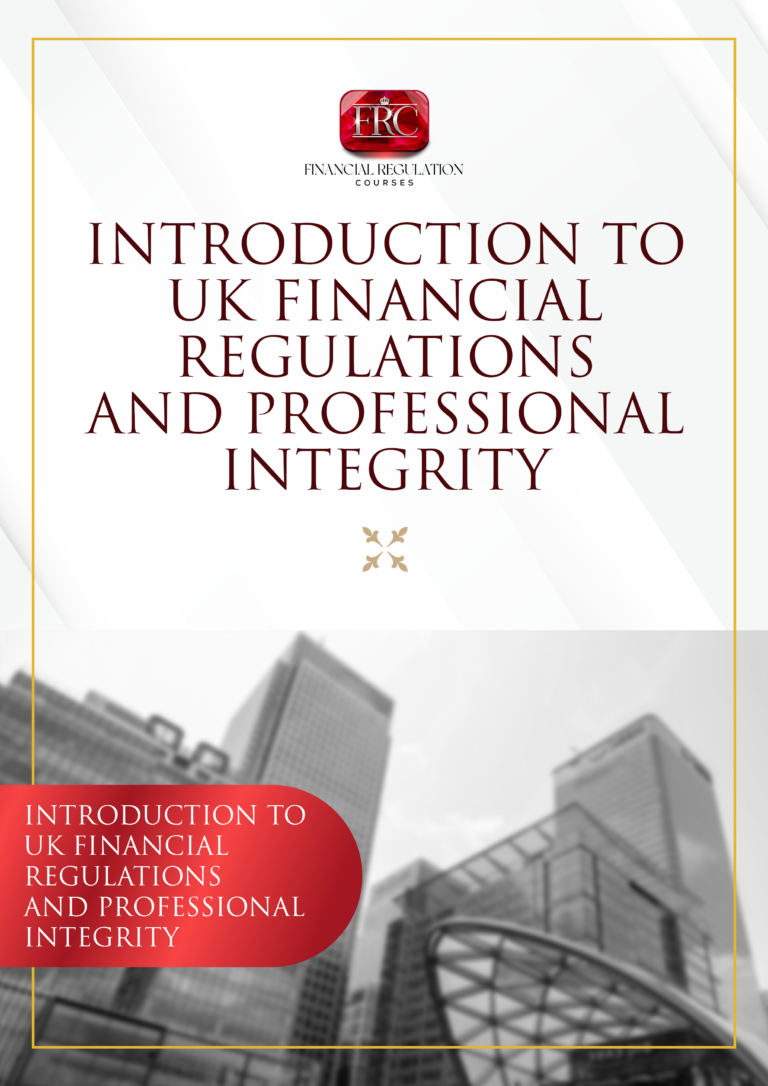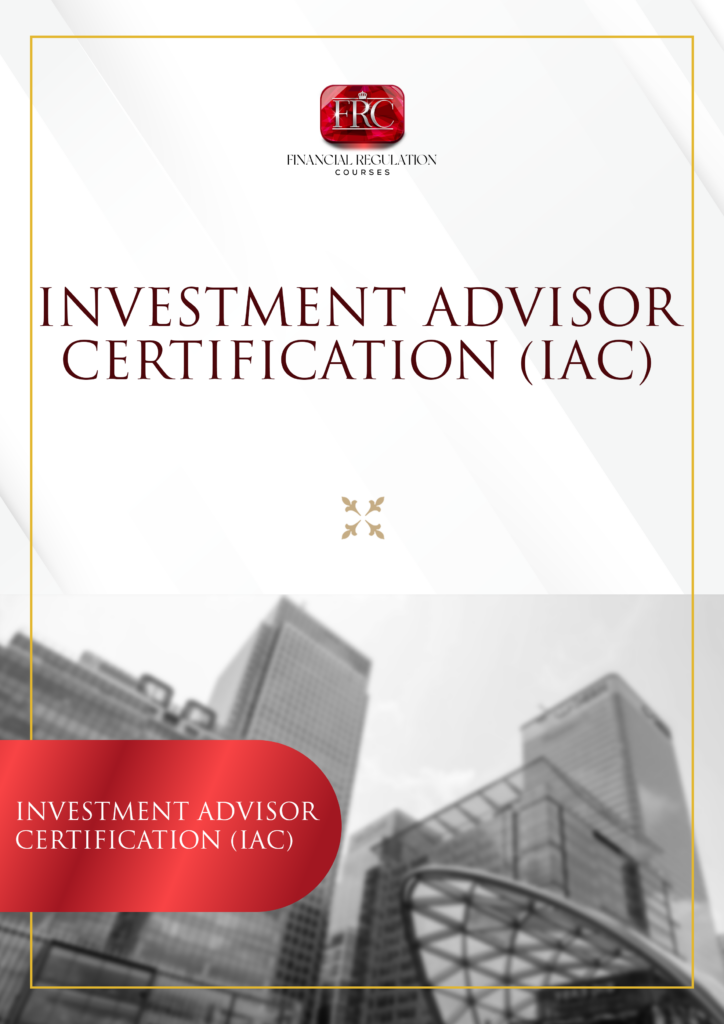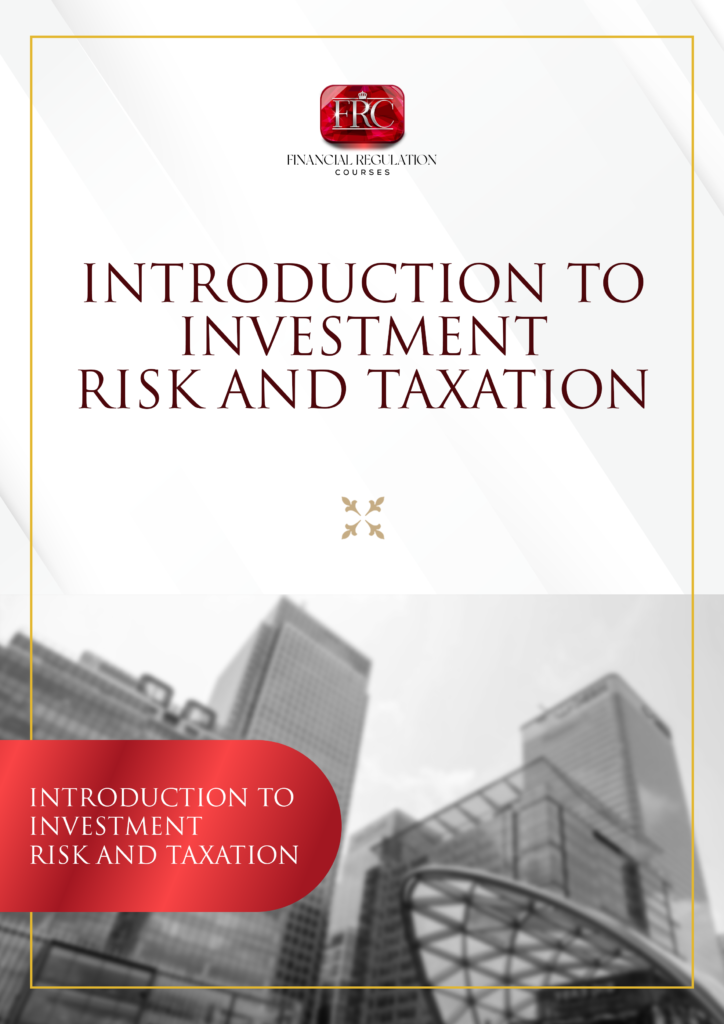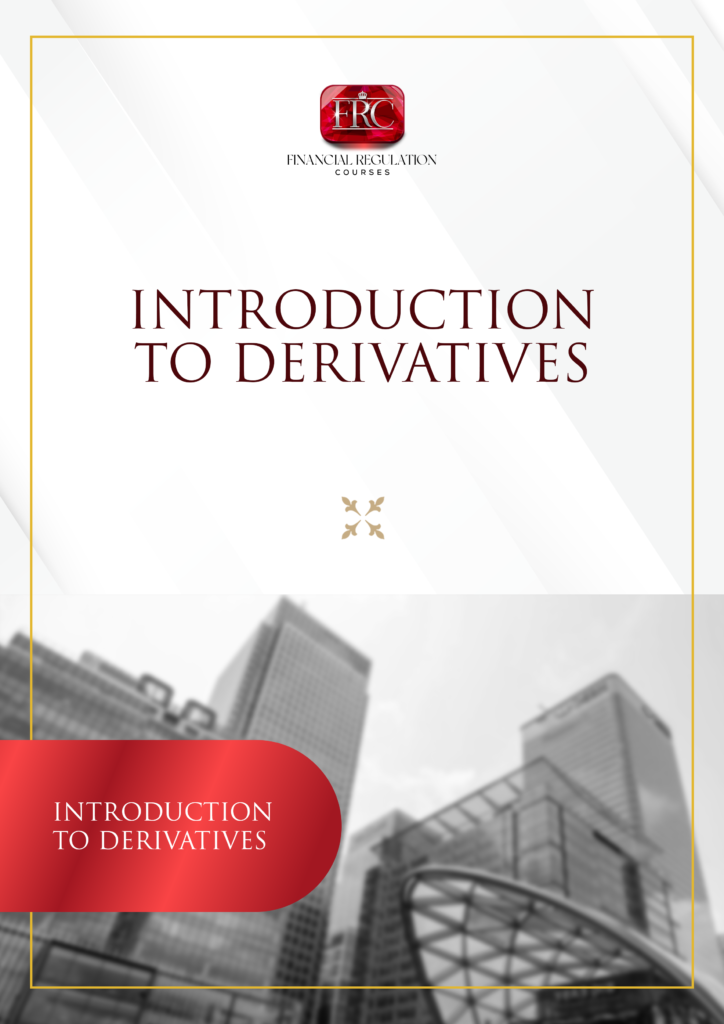Introduction To UK Financial Regulations and Professional Integrity - Learning Outcomes
This essential module, part of the comprehensive Investment Advisor Certification (IAC), lays the foundation for a thorough understanding of financial regulations, professional ethics, and the principles of integrity within the UK financial sector. The course is meticulously designed to equip participants with advanced knowledge and practical skills that are critical for success in investment advisory and related roles.
Participants will delve into key areas such as compliance with UK regulations, effective risk management, taxation frameworks, and the application of derivatives in portfolio strategies. By completing this unit, learners will develop the expertise required to navigate complex financial scenarios and uphold the highest professional standards.
The Introduction to UK Financial Regulations and Professional Integrity serves as the first step towards mastering the core competencies of investment advisory, positioning graduates as trusted and credible professionals in the competitive financial services industry.

Flawlessly Refining Careers
Unit 1: Introduction to UK Financial Regulations and Professional Integrity
This unit focuses on understanding the regulatory framework governing the UK financial services industry, with a strong emphasis on professionalism, integrity, and ethics. Participants will:
Understand the Role of the FCA:
Gain a thorough knowledge of the Financial Conduct Authority (FCA), its regulatory functions, and its impact on market integrity, consumer protection, and competition.Apply Professional and Ethical Standards:
Learn to uphold codes of conduct and adhere to ethical guidelines essential for maintaining trust and accountability in the financial sector.Recognise the Importance of Integrity:
Explore how integrity influences decision-making, client relationships, and compliance with industry regulations.Analyse Whistleblowing Policies:
Understand whistleblowing mechanisms and protections, fostering a culture of transparency and accountability within financial organisations.
Unit 2: Investment Risk and Taxation
This unit equips participants with the skills to identify, evaluate, and mitigate financial risks while understanding the critical role of taxation in investment decisions. Participants will:
Master Risk Management Principles:
Develop the ability to identify various types of investment risks, such as market, credit, and liquidity risks, and apply appropriate mitigation strategies.Assess Risk-Return Trade-offs:
Learn to balance potential returns against associated risks, ensuring sound investment strategies aligned with client objectives.Understand Tax Implications:
Explore the relationship between investment strategies and taxation, gaining insights into tax-efficient practices to maximise returns while remaining compliant with UK tax laws.Implement Risk Monitoring Techniques:
Acquire practical skills to monitor and evaluate risk exposure across diverse portfolios in a dynamic financial environment.
Unit 3: Introduction to Derivatives
This unit provides a foundational understanding of derivatives, their role in financial markets, and their applications in investment advisory. Participants will:
Comprehend Derivative Instruments:
Gain an in-depth understanding of futures, forwards, swaps, and other derivative instruments, including their structures and characteristics.Apply Derivatives in Risk Management:
Learn how derivatives are used for hedging against market volatility, protecting portfolios, and managing financial risks effectively.Understand Derivative Pricing Models:
Develop a basic knowledge of derivative pricing and valuation, including factors influencing pricing decisions in real-world scenarios.Navigate Regulatory and Ethical Considerations:
Explore the legal and ethical implications of trading derivatives, ensuring compliance with regulations and maintaining high professional standards.Evaluate Speculative Strategies:
Analyse the use of derivatives in speculative trading and understand the potential risks and rewards involved in such strategies.
Overall Learning Outcomes of the IAC
By completing the Investment Advisor Certification, participants will:
Demonstrate a comprehensive understanding of UK financial regulations, professional ethics, and the role of the FCA.
- Develop advanced skills in risk assessment, management, and tax-efficient investment strategies.
- Acquire foundational expertise in derivatives, including their practical applications in hedging, speculation, and portfolio optimisation.
- Showcase professionalism and integrity, adhering to ethical standards essential for maintaining trust and credibility in the financial industry.
- Enhance their ability to navigate complex financial scenarios with confidence, precision, and strategic foresight.
The IAC prepares professionals to excel in a highly competitive industry, providing them with the tools to deliver value-driven, compliant, and ethical advisory services to clients globally.
“The Investment Advisor Certification: Redefining Success in Finance”
The Investment Advisor Certification (IAC) is not just a milestone; it’s a transformational journey that redefines what it means to succeed in the financial sector. Built on the principles of excellence, integrity, and professionalism, the IAC equips you with the skills and knowledge to excel as a leader in investment advisory.
Through its carefully designed curriculum, the IAC integrates the core areas of financial regulations, risk management, taxation, and derivatives. You will master essential concepts such as navigating FCA guidelines, balancing investment risks with tax-efficient strategies, and leveraging derivative instruments like futures, forwards, and swaps for hedging and portfolio optimisation.
More than technical expertise, the IAC instils a profound commitment to professional ethics and accountability, ensuring you uphold the highest standards in every client interaction. With these in-depth learning outcomes, you position yourself as a trusted advisor, ready to inspire confidence in clients and employers alike.
Don’t just meet industry standards—exceed them. Let the Investment Advisor Certification set you apart, paving the way for unparalleled growth and opportunity in a competitive global market.



